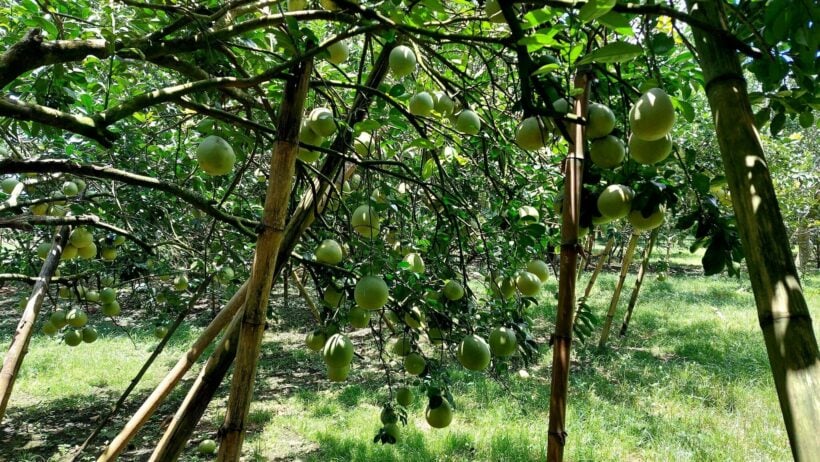China punishes Taiwan farmers for Pelosi visit

Taiwan is still feeling the fallout from the visit of US politician Nancy Pelosi in August.
China’s response to Taiwan accepting the US House of Representatives Speaker was to punish the country with a series of economic measures such as blocking the imports of more than 2,000 different Taiwanese foodstuffs, including pomelos.
Understandably, Taiwan’s farmers are suffering from the ban.

Fruit farmer Wu Cheng-wan initially thought the weather was the only thing he had to worry about ahead of the harvest but China’s decision has crippled his industry.
“This year I was very cautious. I was especially afraid because the lack of rain and drought disrupted growth, and then political circumstances led China to cut off orders, so we can’t sell our pomelos.”
Pomelo fruit is popular in Taiwan and is usually picked ahead of the Mid-Autumn Festival, which landed on September 10 last month. About 70% of Taiwan’s fruit is exported to China but they have banned it as punishment for allegedly encouraging the US to get involved in whether the country will remain autonomous and self-governed or will eventually become part of China.
Wu made known that many farmers gave up trying to sell their wares after a sharp drop in prices and that they are struggling to cover costs for labour and fertilizer.
“The month before the Mid-Autumn Festival, the market was already saturated, so when it was our turn to harvest pomelos in Ruisui (a small town in Taiwan) it was too late as the price had already dropped.
“This year’s Chinese market ban came quickly, so it was too late to find a new market and too late to react.”
Taiwan-China Import Export
Taiwan’s biggest trading partner is China. Almost 42% of their exports go to the mainland whereas 15% go to the US. About 22% comes the other way from China and 10% from the US.
Aside from food produce Taiwan’s electronics and semiconductor industry is deeply connected with China’s tech industry and these too have been hit hard by the Chinese ban.
Taipei has to find other markets now as there is no clue when restrictions will be lifted by Beijing.
Christina Lai, a junior research fellow at the Institute of Political Science at Academia Sinica, Taiwan’s top research institution, believes it will take time for Taiwan farmers to find new marketplaces.
“It is unclear how long China’s ban on tropical fruits and tourists will last, but Taiwan’s diversification strategies for its agricultural industry will certainly continue.
“It might take several years for Taiwan’s farmers to make needed structural adjustments and sector reforms.”
Wu believes the Tapei government needs to step in and bridge the gap until they find new marketplaces otherwise the farming industry will die.
He said…
“The government has been saying that this country is built on agriculture, but farmers are quickly being crushed to death.”
Latest Thailand News
Follow The Thaiger on Google News:


























